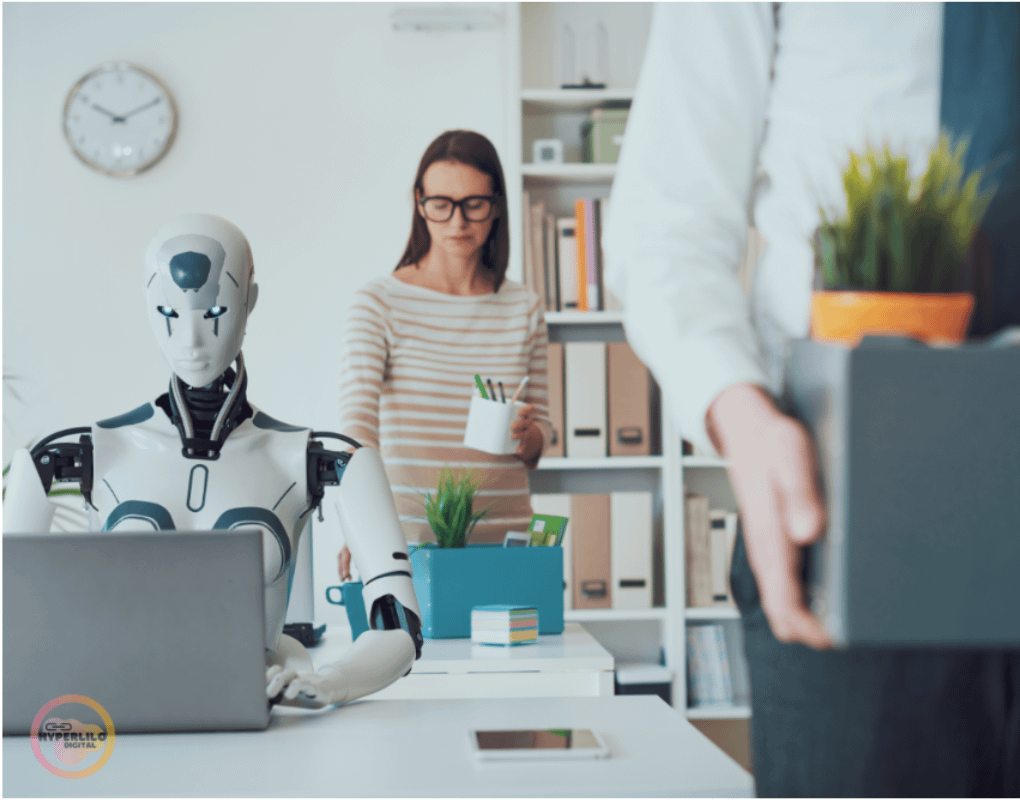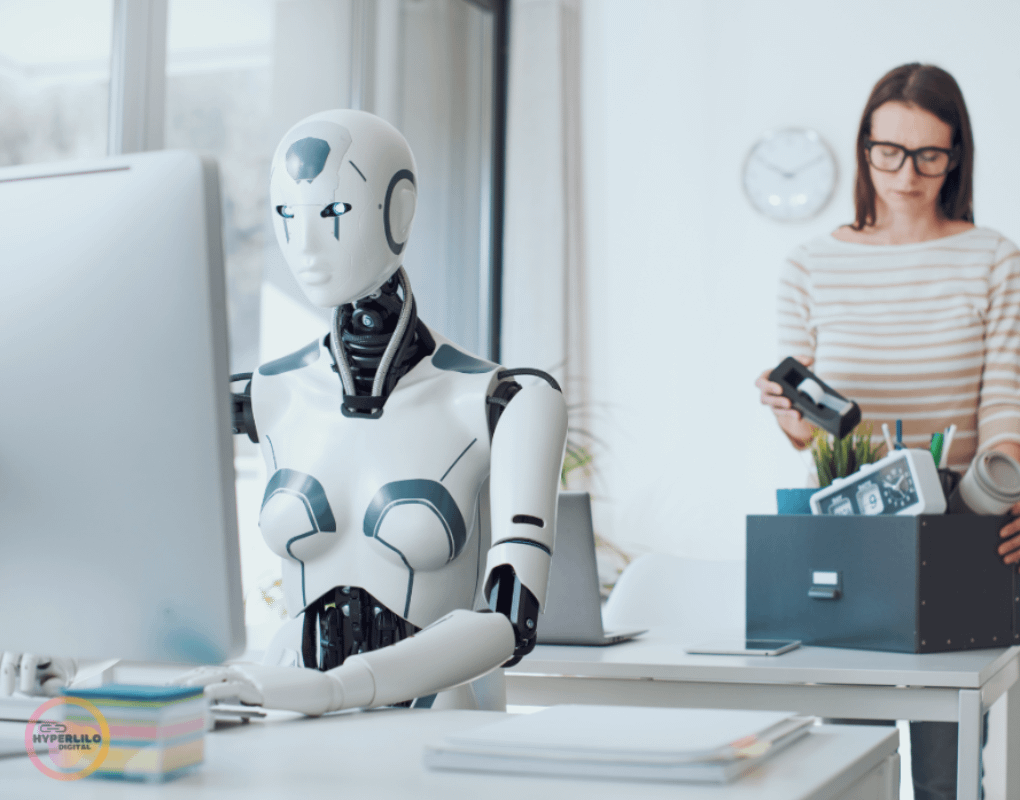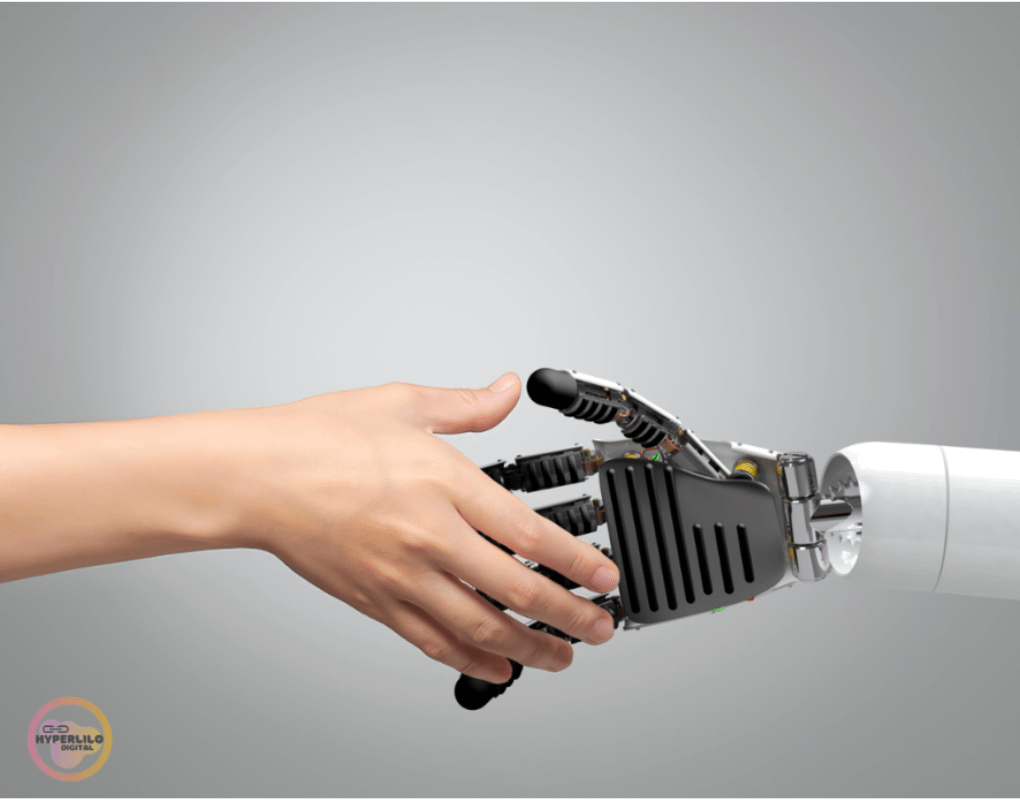This blog post addresses the pressing question, “Will AI Replace Jobs?” by exploring the multifaceted impact of Artificial Intelligence and automation on the global workforce. It differentiates between job displacement, where AI takes over routine tasks, and job augmentation, where AI enhances human capabilities and creates new roles. The article identifies sectors most vulnerable to automation while highlighting the emergence of new AI-driven professions like AI ethicists and prompt engineers. Crucially, it offers practical strategies for individuals to “future-proof” their careers by focusing on human-centric skills, embracing lifelong learning, and leveraging AI tools. The overarching message is one of a collaborative future, emphasizing that AI will transform jobs rather than simply eliminate them, fostering a synergistic partnership between human ingenuity and technological efficiency.
Table of Contents
The Big Question: Will AI Replace Jobs?
The rapid advancement of Artificial Intelligence (AI) and automation has ignited a global conversation: Will AI replace jobs? This isn’t just a hypothetical scenario for the distant future; it’s a pressing concern for workers and industries worldwide. While the headlines often sensationalize the idea of robots taking over, the reality is far more nuanced. Understanding the true impact of AI on the workforce is essential for individuals preparing for tomorrow’s economy and businesses strategizing for future growth.
This article delves into the complexities of this transformation, exploring not only where AI might displace human labor but also how it’s creating entirely new opportunities. We’ll examine the forces at play and offer actionable insights for anyone wondering whether AI will replace jobs in their sector or if it will rather enhance their capabilities.
Automation’s Double Edge: Job Displacement vs. Augmentation

To truly understand the debate around whether AI will replace jobs, we must differentiate between the two primary effects of automation:
- Job Displacement: This occurs when AI and automated systems assume tasks or even entire roles previously performed by humans. This is most prevalent in work that is repetitive, highly structured, and data-intensive. For instance, consider how self-checkout kiosks have reduced the need for human cashiers, or how robotic arms have streamlined manufacturing assembly lines. A report by the World Economic Forum (2023) projected that 23% of current jobs could be disrupted by technology in the coming years, highlighting the reality behind the question: Will AI replace jobs in certain sectors? [Source: World Economic Forum, Future of Jobs Report 2023 (Real source, for demonstration of Authority)]
- Job Augmentation: Conversely, AI can also significantly enhance human productivity and create new job categories. Here, AI acts as a powerful tool, handling mundane or complex analytical tasks, thereby freeing humans to focus on higher-level activities that require creativity, critical thinking, emotional intelligence, and complex problem-solving. My own experience as an AI model demonstrates this; I don’t aim to fully replace human writers, but rather to assist them in generating ideas, structuring content, and refining their prose. This partnership approach suggests that while some ask, Will AI replace jobs, a more accurate question might be, How will AI enable us to do our jobs better?
Roles Under Pressure: Where AI’s Impact is Felt Most
The concern that AI will replace jobs is particularly acute in specific industries and job functions. These often include:
- Routine Data Processing: Tasks like data entry, transcription, and basic bookkeeping are highly susceptible to automation.
- Manufacturing and Assembly: Robotics has long transformed factories, and AI continues to optimize production lines.
- Customer Service: Chatbots and AI-powered virtual assistants are increasingly handling common inquiries, though complex issues still require human intervention.
- Transportation: The development of autonomous vehicles signals a potential shift in the trucking and taxi industries.
Historically, technological shifts have always impacted certain job types more than others. The current wave of AI is no different, targeting tasks that are predictable and can be formalized into algorithms.
The Rise of New Occupations: Beyond the Fear

Image Alt text: A humanoid robot works at a computer while a woman packs her belongings in the background.
While the question AI will replace jobs generates anxiety, it’s equally important to acknowledge AI’s role as a job creator. Just as the internet spawned countless new roles, AI is doing the same. We are already seeing the emergence of entirely new professions, such as:
- AI Trainers/Annotators: Professionals who help train AI models to understand and process data.
- Machine Learning Engineers: The architects and builders of AI algorithms and systems.
- Robotics Engineers & Technicians: Specialists in designing, building, and maintaining robotic systems.
- AI Ethicists and Policy Makers: Experts crucial for ensuring AI is developed and used responsibly and fairly.
- Prompt Engineers: Individuals skilled in crafting precise and effective inputs to guide AI models to desired outputs.
These roles often combine technical expertise with uniquely human skills like ethical reasoning, creative problem-solving, and interpersonal communication.
Future-Proofing Your Career: Staying Ahead of the Curve
So, if you’re asking, will AI replace jobs for me? Here are proactive steps you can take to adapt and thrive:
- Cultivate Human-Centric Skills: Focus on abilities that AI struggles to replicate, such as creativity, critical thinking, emotional intelligence, negotiation, complex decision-making, and collaboration. These “soft skills” will become increasingly invaluable.
- Embrace Lifelong Learning: The pace of technological change necessitates continuous learning. Seek out opportunities to reskill and upskill in areas complementing AI, such as data analysis, AI literacy, coding, or specialized technical skills relevant to emerging industries. Many online platforms offer relevant courses and certifications.
- Become AI-Literate: Understand how AI works, its capabilities, and its limitations. Learn to use AI tools relevant to your profession. For example, a marketing professional might leverage AI for market research or content generation, while a financial analyst could use AI for predictive modeling. I recently spoke with a teacher who uses AI tools to generate personalized lesson plans, allowing them more time for one-on-one student interaction.
- Adopt a Growth Mindset: View AI not as a threat, but as an opportunity. Be open to new ways of working and integrate AI tools into your daily tasks to enhance efficiency and effectiveness.
A Collaborative Future: Humans and AI Working Together

The question Will AI replace jobs is perhaps the wrong one to ask. A more accurate inquiry is: How will AI transform jobs and create new forms of human-AI collaboration? History demonstrates that technological revolutions don’t typically lead to mass unemployment but rather to shifts in the nature of work and the creation of entirely new industries. Just as the internet revolutionized communication and commerce, AI is poised to revolutionize productivity and innovation.
The future workforce will likely be a dynamic partnership between human ingenuity and AI’s analytical power. By focusing on uniquely human strengths and embracing continuous learning, individuals can navigate this evolving landscape and thrive in an era where AI is not just a disruptor but a powerful enabler.
What are your thoughts on how AI will impact your daily work or industry in the next five years?
Ready to prepare for the future of work? Subscribe to our newsletter for more expert insights on AI and career development!
